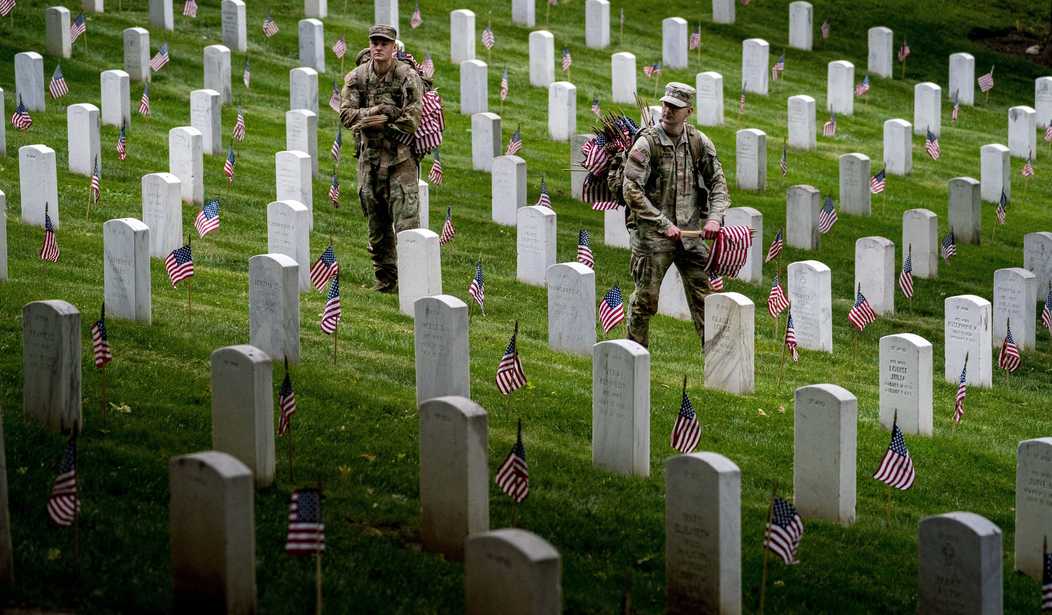Here's a bit of somber news after we finished celebrating Memorial Day. As you likely know, this is a holiday where we celebrate the lives and sacrifices of those who lost their lives in battle, defending our nation and our freedoms. But a new study from April Smith at Government Executive reveals that combat mortalities are not the leading cause of death for active duty military members and veterans. Those deaths are greatly outnumbered by the volume of current and former men and women in the American military who take their own lives. Sadly, this is not a new phenomenon. This disparity has existed going all the way back to 9/11. It's a wider disparity than many might imagine. Four times as many of these men and women die in this fashion than those who are lost in combat. The linked study seeks to find out why and offers possible solutions to reduce the numbers.
Although service members know they may lose their lives in combat in service of their country, they may not expect to lose their lives – or those they love – to suicide. A 2021 study estimated that four times as many active duty service members and veterans died by suicide as died in battle since 9/11.
Despite recent calls to action to improve suicide prevention within the military, suicide rates remain elevated among service members. In particular, active duty Army suicide rates were nearly two times higher than other active duty military services and more than two and a half times higher than the general population. Suicide rates are even more elevated in veterans, with an estimated 17 or more dying by suicide each day in 2021.
My research is aimed at identifying what drives high rates of suicide among certain groups. Better understanding what causes active duty service members and veterans to think about and plan suicide is imperative for efforts to prevent it.
It is first worth noting that in the current era, we might expect the number of combat-related deaths to be lower because we are not currently directly engaged in any major wars following the (disastrous) withdrawal from Afghanistan. Having fewer troops on the battlefield thankfully leads to fewer combat deaths. But that doesn't solve the entire puzzle, because the suicide rate was higher all through both the Iraq and Afghanistan wars. Also, the military/veteran suicide rate remains higher than the general American population.
But why? April Smith identifies a number of potential factors that may sound familiar to those of us who have served. She cites loneliness, relationship issues, workplace difficulties, trauma, and disrupted schedules. Those issues can all afflict civilians as well, but they can be particularly difficult for young people leaving their homes and families and friends to go serve in a new location. Further, many veterans experience difficulty in transitioning back to civilian life after their service is completed.
Curiously, Smith also cites a possibly more ambiguous cause dealing with the mindset of active duty service members. She claims that living in the military and knowing that you may be called upon to make the ultimate sacrifice can lead to a decreased fear of death and high pain tolerance, not to mention developing a familiarity with lethal weapons. I would have to disagree with that assessment, at least to a point. None of us put on the uniform hoping to die or even having less fear of the inevitable specter of death. We simply accepted that it might happen as part of the job.
In terms of helping veterans, particularly those having difficulty transitioning to civilian life, families should make the time to reach out to them to see how they are doing. They should also suggest that the veteran consider joining one of the local veterans' groups such as the American Legion or the VFW. There is strength in numbers and it's probably easier to relate to those who have shared experiences.
For active duty members, this is probably a bit harder. There is no denying that a certain mindset exists inside the military. People feel a need to act tough and they may hesitate to reach out to others and share that they are experiencing things like depression or despair. More resources need to go toward training counselors who can spot such issues and learn how to offer relief. In reality, however, can't we say the same about the civilian population in general? Suicide numbers are up across the board. Perhaps a part of this can be explained by the way the entire world seems to be going crazy these days, but we should all keep an eye on everyone in our social circles and not be afraid to pull someone aside and simply ask, "Hey... are you okay?" But we also need to be prepared to lean in if the answer is "no."








Join the conversation as a VIP Member